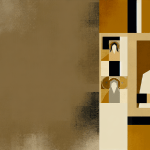The Role of the Pope: Understanding the Papal Influence in the Catholic Church and Beyond
The Pope serves as a central figure in the Catholic Church, embodying the spiritual and administrative leadership that millions of Catholics worldwide rely on. Understanding the role of the Pope involves delving into the complexities of his spiritual responsibilities, the administrative functions he fulfills, and the global influence he wields both within and outside the Church. In this blog post, we will explore the multifaceted role of the Pope, discussing his responsibilities, the historical context, and the significance of his position in today’s world.
The Historical Context of the Papacy
The papacy is a long-standing institution that traces its roots back to Saint Peter, who is considered the first Pope. According to Catholic tradition, Jesus appointed Peter as the leader of his followers, establishing a precedent for his successors. This historical significance underpins the authority of the Pope, who is seen not just as a religious leader but as a symbolic figure carrying forward the teachings of Christ and the early Church.
Over the centuries, the role of the Pope has evolved. From being a local bishop in Rome to becoming the spiritual leader of over a billion Catholics worldwide, the Pope’s influence has expanded both within the Church and in the broader socio-political landscape.
Spiritual Leadership: The Pope’s Primary Role
At the heart of the papal role is spiritual leadership. The Pope serves as the Bishop of Rome and the spiritual leader of the global Catholic Church. His primary responsibilities include:
1. Teaching and Upholding Doctrine
One of the most critical responsibilities of the Pope is to teach and uphold the beliefs and doctrines of the Catholic faith. This includes interpreting Scripture and guiding the Church through various theological and moral issues that arise in contemporary society. The Pope issues encyclicals, apostolic letters, and other documents that serve to clarify the Church’s stance on various issues, including social justice, family life, and global peace.
2. Sacraments and Liturgical Oversight
The Pope plays a significant role in the sacramental life of the Church. He can administer sacraments and appoint bishops who will oversee the celebration of the sacraments in their respective dioceses. The liturgical practices of the Church, including the observance of the Mass, are influenced by papal directives, which help maintain unity in worship across diverse cultures.
3. Fostering Ecumenism
In today’s increasingly pluralistic world, the Pope is tasked with fostering ecumenism, or the effort to promote unity among Christian denominations. Through dialogue and collaboration, the Pope seeks to bridge divides between different Christian traditions, encouraging a spirit of cooperation and shared witness to the Gospel.
Administrative Responsibilities of the Pope
In addition to his spiritual role, the Pope has significant administrative duties that ensure the effective governance of the Catholic Church.
1. Governance of the Vatican
The Vatican City, an independent city-state surrounded by Rome, serves as the administrative and spiritual center of the Catholic Church. The Pope governs the Vatican and oversees its various departments, known as dicasteries, which deal with specific areas of Church life, such as education, missionary work, and clergy affairs. This administrative role not only involves managing the Vatican but also influencing the church’s global strategy.
2. Appointing Bishops and Cardinals
The Pope has the authority to appoint bishops and cardinals worldwide. These appointments are critical in maintaining the Church’s structure and ensuring that Catholic teachings are upheld in various regions. Through these selections, the Pope can influence the direction of the Church in different parts of the world, addressing regional challenges and promoting local pastoral needs.
3. Engaging with Global Leaders
The role of the Pope extends beyond the Church, as he often engages with world leaders on issues of morality, justice, and humanitarian concerns. The Pope’s diplomatic efforts often lead to significant discussions on peace, human rights, and global development, demonstrating the intersection of faith and politics.
The Pope’s Global Influence
Throughout history, the Pope has wielded considerable influence on various social and political issues. His position allows him to advocate for peace, social justice, and environmental stewardship.
1. Advocating for Peace and Social Justice
Popes have historically played a role in advocating for peace and reconciliation, addressing conflicts such as wars and human rights violations. Through public statements, papal visits to conflict zones, and meetings with leaders involved in peace processes, the Pope seeks to promote dialogue and understanding.
2. Addressing Modern Challenges
In recent years, Pope Francis has addressed pressing global challenges such as climate change, poverty, and migration. His encyclical Laudato Si’, which calls for an urgent response to environmental degradation, reflects the Church’s commitment to protecting creation. The Pope’s statements on migration emphasize the need for compassion and respect for human dignity, urging governments to adopt humane policies.
3. Promoting Interfaith Dialogue
Recognizing the diverse religious landscape of the modern world, the Pope actively promotes interfaith dialogue. By engaging with leaders of other faith traditions, the Pope seeks to foster mutual understanding and respect, addressing common issues such as poverty, violence, and the search for peace.
The Challenges Facing the Papacy Today
While the role of the Pope has evolved over the centuries, it is not without its challenges. The Church faces numerous issues that impact the Pope’s ability to lead effectively.
1. Declining Church Attendance
In many parts of the world, particularly in Western countries, declining church attendance poses a significant challenge. The Pope must address the reasons behind this trend while finding ways to engage younger generations and reinvigorate faith practices.
2. Sexual Abuse Scandals
The Catholic Church has faced a series of scandals related to the sexual abuse of minors by clergy members. The Pope’s response to these issues has been scrutinized, and reconciling the Church’s past with its commitment to safeguarding the faithful remains a pressing concern.
3. Navigating Modernity
The complexities of modern society, including advances in technology, changing cultural norms, and increasing secularism, require the Pope to navigate carefully. He must find ways to communicate the timeless truths of the faith while addressing contemporary concerns.
Conclusion: The Enduring Significance of the Papacy
The role of the Pope is an intricate tapestry woven through centuries of history, spiritual leadership, and administrative responsibility. As the head of the Catholic Church, the Pope carries the weight of tradition while confronting modern challenges. His influence extends far beyond the Vatican, impacting global conversations on peace, justice, and morality.
In understanding the role of the Pope, we gain insight into the ongoing relevance of the Catholic Church in the 21st century and the enduring call to faith, unity, and service within a diverse and rapidly changing world. Whether through spiritual guidance, administrative oversight, or global advocacy, the Pope remains a pivotal figure, navigating the complexities of our times with faith and compassion.
As we reflect on the Papacy, it is essential to appreciate its profound influence and the challenges it faces in today’s interconnected world. The role of the Pope will continue to evolve, but its core mission—to serve as a shepherd for the faithful—remains steadfast.




